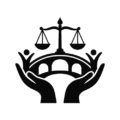Intellectual Property Infringement Case
What Is Intellectual Property (IP) Infringement?
Intellectual Property (IP) infringement occurs when a person or entity uses, copies, or exploits someone else’s intellectual property without permission or legal right. This includes unauthorized use of copyrights, trademarks, patents, or trade secrets. IP rights are legally protected, and infringement can lead to both civil and criminal consequences depending on the jurisdiction.
Why IP Infringement Matters
In today’s digital and globalized world, protecting intellectual property is essential. Whether it’s a brand logo, a patented invention, or an original artwork, IP is a valuable asset that gives businesses and creators a competitive edge. Infringement can lead to:
- Financial losses
- Brand dilution
- Loss of market share
- Legal disputes and reputational damage
Types of Intellectual Property Infringement
- Copyright Infringement
Occurs when someone uses a copyrighted work—such as music, literature, software, or film—without authorization. Common examples:
- Downloading pirated movies or software
- Copying website content without credit
- Publishing someone else’s photographs or artwork without permission
- Trademark Infringement
Happens when a party uses a name, logo, slogan, or design that is confusingly similar to a registered trademark. This often leads to consumer confusion and unfair competition.
Example: A business selling shoes under the name “Adibas” resembling the well-known brand “Adidas.”
- Patent Infringement
Involves the unauthorized production, use, or sale of a patented invention. Patent laws are highly technical, and infringement often leads to lengthy legal battles.
Example: A tech company replicating a patented mobile phone design without a license.
- Trade Secret Misappropriation
Occurs when confidential business information—such as formulas, practices, or customer lists—is disclosed or used without consent.
Example: A former employee sharing a secret recipe with a competitor.
Notable IP Infringement Case Examples
- Apple Inc. vs. Samsung Electronics
One of the most famous patent infringement cases in the tech industry. Apple accused Samsung of copying the iPhone’s design and software features. The case spanned multiple countries and resulted in over $1 billion in damages at one point.
- Disney vs. Various Content Pirates
Disney, the owner of countless copyrights and trademarks, has regularly taken down pirated content from streaming websites and YouTube channels, enforcing its rights globally.
- Zara vs. Independent Artists
Zara faced backlash and legal threats for allegedly copying independent designers’ illustrations and placing them on its clothing without consent or credit.
Legal Remedies for IP Infringement
If you are a victim of IP infringement, several legal remedies are available:
- Cease and Desist Letter
A formal warning demanding that the infringing party stop using the IP. Often the first step in resolving disputes.
- Injunction
Court order to stop the infringer from using the IP immediately.
- Monetary Damages
Courts may award compensation for financial losses, including:
- Actual damages
- Punitive damages
- Royalties
- Seizure or Destruction of Infringing Goods
Authorities can confiscate and destroy counterfeit or infringing items.
- Criminal Prosecution
In severe cases (especially involving counterfeiting or piracy), the infringer may face criminal charges, fines, or imprisonment.
How to Prevent Intellectual Property Infringement
- Register your IP – Copyright, trademark, and patent registration provide legal protection and enhance enforcement.
- Use contracts and NDAs – Secure your trade secrets and confidential information.
- Monitor the market – Regularly search for potential infringements online and in the marketplace.
- Educate employees and partners – Ensure everyone involved understands the importance of IP protection.
- Take swift action – The sooner you address infringement, the better your chances of successful enforcement.
IP Infringement Under Indian Law
In India, intellectual property rights are governed by several statutes:
- Copyright Act, 1957
- Trade Marks Act, 1999
- Patents Act, 1970
- Designs Act, 2000
- Information Technology Act, 2000 (for digital infringement)
Legal recourse is available through civil courts, criminal prosecution (in some cases), and specialized tribunals like the Intellectual Property Appellate Board (IPAB).
Frequently Asked Questions (FAQs)
Yes, certain forms of IP infringement—like trademark counterfeiting or copyright piracy—can attract criminal charges under Indian law.
You must demonstrate that:
- You own valid IP rights
- The other party used your IP without authorization
- The use caused damage or confusion
Under Indian law, it can include imprisonment up to 3 years, fines up to ₹2 lakh, or both, depending on the severity.
In some cases, like copyright, protection arises upon creation. However, registration strengthens your legal position and is recommended.
Author: Nyaya Setu Legal Association
Disclaimer: This article is intended for informational purposes only and does not constitute legal advice. For specific legal assistance regarding Intellectual Property Infringement Case, please consult us for more option.

